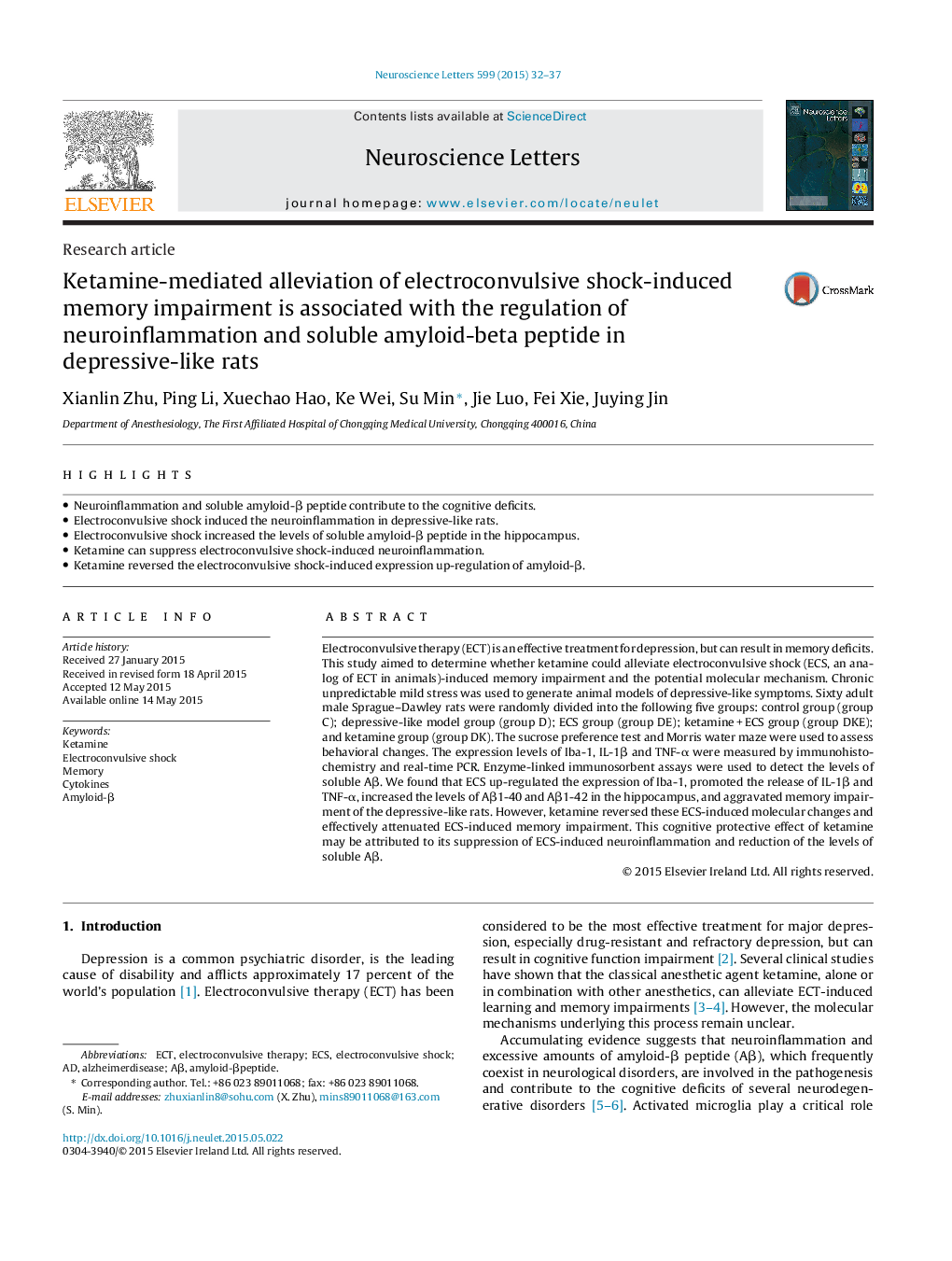| کد مقاله | کد نشریه | سال انتشار | مقاله انگلیسی | نسخه تمام متن |
|---|---|---|---|---|
| 4343426 | 1615100 | 2015 | 6 صفحه PDF | دانلود رایگان |
• Neuroinflammation and soluble amyloid-β peptide contribute to the cognitive deficits.
• Electroconvulsive shock induced the neuroinflammation in depressive-like rats.
• Electroconvulsive shock increased the levels of soluble amyloid-β peptide in the hippocampus.
• Ketamine can suppress electroconvulsive shock-induced neuroinflammation.
• Ketamine reversed the electroconvulsive shock-induced expression up-regulation of amyloid-β.
Electroconvulsive therapy (ECT) is an effective treatment for depression, but can result in memory deficits. This study aimed to determine whether ketamine could alleviate electroconvulsive shock (ECS, an analog of ECT in animals)-induced memory impairment and the potential molecular mechanism. Chronic unpredictable mild stress was used to generate animal models of depressive-like symptoms. Sixty adult male Sprague–Dawley rats were randomly divided into the following five groups: control group (group C); depressive-like model group (group D); ECS group (group DE); ketamine + ECS group (group DKE); and ketamine group (group DK). The sucrose preference test and Morris water maze were used to assess behavioral changes. The expression levels of Iba-1, IL-1β and TNF-α were measured by immunohistochemistry and real-time PCR. Enzyme-linked immunosorbent assays were used to detect the levels of soluble Aβ. We found that ECS up-regulated the expression of Iba-1, promoted the release of IL-1β and TNF-α, increased the levels of Aβ1-40 and Aβ1-42 in the hippocampus, and aggravated memory impairment of the depressive-like rats. However, ketamine reversed these ECS-induced molecular changes and effectively attenuated ECS-induced memory impairment. This cognitive protective effect of ketamine may be attributed to its suppression of ECS-induced neuroinflammation and reduction of the levels of soluble Aβ.
Journal: Neuroscience Letters - Volume 599, 10 July 2015, Pages 32–37
